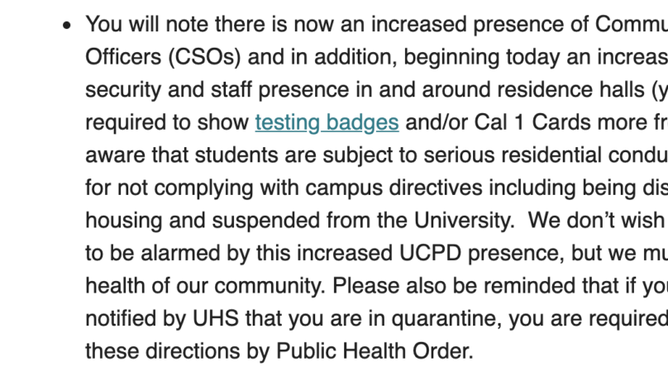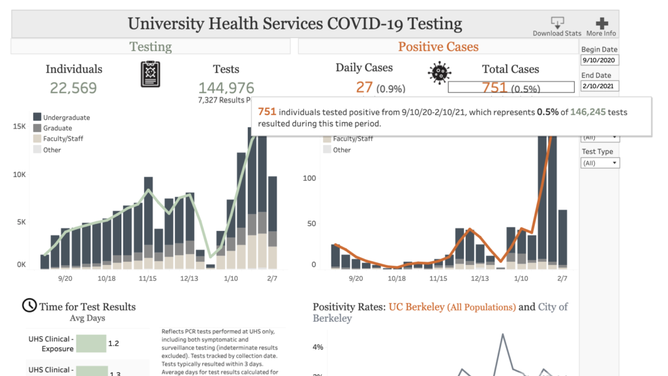UC Berkeley's COVID Response: Outdoor Exercise Ban, Police at Dorms
As the state of California begins to lift some COVID-19 restrictions, UC Berkeley has implemented some questionable new ones.
The public university sent a message alerting its on-campus residents Monday it was banning solo outdoor exercise and extending the "self-sequester" period.
UC Berkeley first announced a self-sequester period on Feb. 1, requiring its residential housing students to remain in their dorm rooms for a week. UMass also banned solo outdoor exercise and requires residents to self-sequester.
"We are working with the city of Berkeley to determine whether outdoor exercise may be permitted, and we will provide more information on this in the near future," the Monday email reads.
Alameda County, in which the school is located, does not have a ban on solo exercise in place.
SFGATE reports a university police officer is posted outside the dorm used for housing students who have tested positive for COVID-19.
“We don’t wish for residents to be alarmed by this increased UCPD presence, but we must ensure the health of our community,” the email states.

The Monday email sent to students can be read here.
The email also states that more university officials will be monitoring dorms, in addition to campus security officers.
Residential students are required to be in their rooms at all times unless going to the bathroom, getting a COVID-19 test, getting food, or leaving due to some form of emergency.
UC Berkeley's website shows 751 individuals have tested positive for COVID-19 since September 2020, according to its COVID-19 dashboard.

UC Berkeley's COVID-19 dashboard shows 751 individuals have tested positive for COVID-19 between Sept. 20, 2020, through Feb. 10, 2021 — this represents 0.5% of 146,245 tests resulted during this time period.
As of Thursday, the city of Berkeley has confirmed a total of 3,001 cases of COVID-19 since the start of the pandemic.
"While new cases are slowing down, showing that our measures and your helpful efforts have been effective," the Monday email reads.
Residental students will continue to be tested twice per week, as they have been required to do throughout this semester, with no more than 3 to 4 days between tests. Residents may not use the communal bathroom when it is occupied by another person.
UC Berkeley said students that have a job or work-study position that requires the individual to leave the room should not attend.
The self-sequester affects only students living in Berkeley-sponsored dorms and not those living in housing off-campus or apartments owned by the school, SFGate reports.
Students who violate the self-sequester protocols could face the threat of suspension or removal from the dorms.